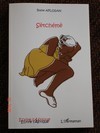| London-based news publication – the Financial Times (FT) is suggesting that Ivorian President Alassane Ouattara is using the oil border dispute between his country and Ghana to punish President John Atta Mills for supporting ex-Ivorian leader Laurent Gbagbo when he refused to cede power after an election that international observers say he had lost. Following Gbagbo’s refusal to leave office, Ghana’s neighbour, Ivory Coast plunged into conflict and thousands of people were killed. Gbagbo was however captured in April 2011 and is now standing trial at the International Criminal Court (ICC) in the Hague, accused of crimes against humanity. The FT report written by its Africa editor William Wallis says that Ivory Coast has complicated matters for Ghana’s oil find by raising questions on the maritime boundary around the Jubilee field and that “relations between stakeholders have oscillated from the suspicious to the acrimonious.” According the FT, the environment in the region has become more problematic. “Last April, Laurent Gbagbo was ousted as president of Ivory Coast after a doomed attempt to manipulate election results. Ghana remained one of Mr Gbagbo’s few allies almost until the end; within weeks of the installation of Alassane Ouattara as his successor, Ivory Coast made territorial claims on offshore waters already licensed by Ghana.” Citing unnamed Ghanaian officials, the FT says they first got wind of this when the Ivorian government wrote to oil companies requesting that they cease activities in waters long considered to be on Ghana’s side. “They acknowledge relations with the new administration in Ivory Coast are tense and privately maintain the border claim is a strategy designed at least partially to punish President John Evans Atta Mills for backing the wrong side,” writes William Wallis. Early November 2011, the Ivorian government mapped out a new maritime border it is sharing with Ghana covering some of the jubilee oilfields. The country has therefore publicly challenged Ghana over title to the offshore acreage hosting some of the region’s most prolific oil and gas fields. It is believed that the disputed border hold about a billion-barrel discoveries. Even though talks between Ghana and Ivory Coast have not been concluded, oil news publication-Upstream – says Ivory Coast is planning to develop its own gas processing infrastructure, ostensibly duplicating proposals advanced by Ghana, although most believe this move is simply political posturing ahead of a diplomatic solution to the maritime border impasse.
|
Although there seems to be a looming diplomatic uproar, Ghana says the Jubilee oilfields are safe despite Ivory Coast’s claim of the oil border Ghana’s Energy Minister Dr Joe Oteng Adjei at a press conference in Accra early October 2011 assured Ghanaians not to worry about the border dispute. He made the comment the day President Ouattara paid a day’s visit to Ghana after assuming power. This was re-echoed by Foreign Affairs Minister Alhaji Muhammad Mumuni during a press conference in Accra Tuesday December 6, 2011. He assured Ghanaians that the Jubilee oilfields are safe, according to a Daily Graphic newspaper report. He said the government was determined to ensure that the national interest and the interest of Ghanaians were not compromised in any way, according to the report. The Jubilee Partners are also worried about the situation. Texas-based oil explorer, Kosmos Energy has expressed fears about the development. The oil producer says the future of a portion of its license in the Deepwater Tano Block is uncertain as the issue remains unresolved. |
Copyright, Blaise APLOGAN, 2010,© Bienvenu sur Babilown
Toute republication de cet article doit en mentionner et l’origine et l’auteur sous peine d’infraction
![]()








Commentaires